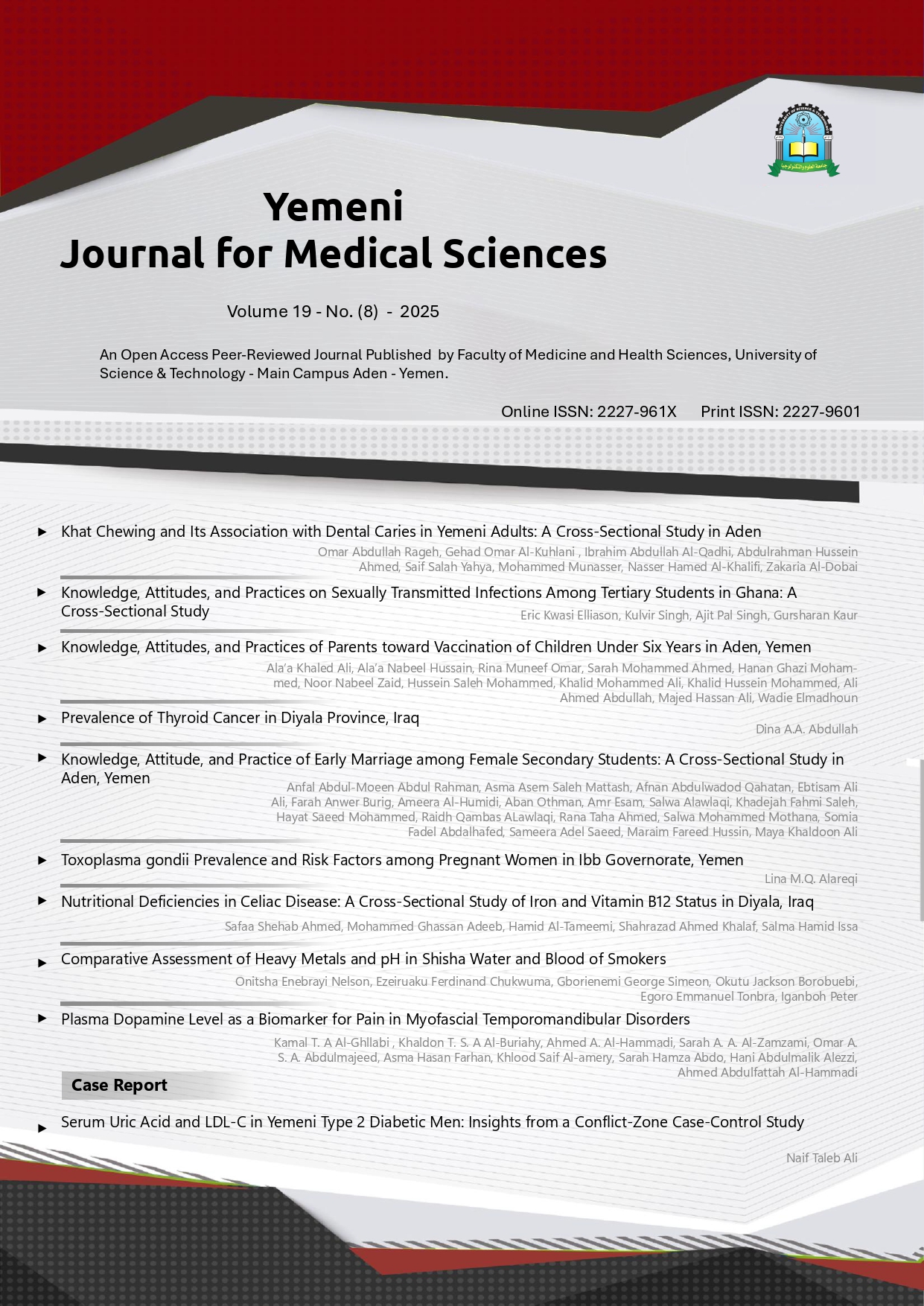Knowledge, Attitudes, and Practices on Sexually Transmitted Infections Among Tertiary Students in Ghana: A Cross-Sectional Study
##plugins.themes.bootstrap3.article.main##
Abstract
Background: Sexually transmitted infections (STIs) remain a growing public health challenge among young people in sub-Saharan Africa, particularly in Ghana. Tertiary students are vulnerable due to risky sexual behaviors, stigma, and insufficient knowledge of STIs.
Objective: This study aimed to assess the knowledge, attitudes, and practices (KAP) related to STIs among tertiary education students in Ghana and to examine how demographic characteristics influence these factors.
Methods: A cross-sectional descriptive study was conducted among 1,500 students from six tertiary institutions using a stratified random sampling technique. Data were collected through a structured, self-administered questionnaire and analyzed using SPSS Version 25. Descriptive statistics, chi-square tests, and binary logistic regression were used to explore associations and predictors.
Results: Only 58.5% of students demonstrated adequate knowledge of HIV/AIDS, while knowledge of other STIs was lower: syphilis (45.3%), gonorrhea (40.1%), and chlamydia (35.0%). Although 72.4% reported ever using condoms, only 28.6% practiced consistent condom use, and just 9.4% had undergone STI testing. Female and rural students reported significantly higher stigma scores (mean = 4.0 and 4.1, respectively, on a 5-point scale) compared to male and urban peers. Key predictors of poor knowledge and practices included rural residence, lower education level, and female gender (p < 0.05).
Conclusion: Findings reveal concerning gaps between STI awareness and preventive behavior among Ghanaian tertiary students, particularly in rural and female subgroups. These results underscore the need to integrate STI education into tertiary curricula, expand access to youth-friendly STI testing, and implement stigma-reduction campaigns. Targeted policies and campus health interventions are critical for improving sexual health outcomes in this at-risk population.
##plugins.themes.bootstrap3.article.details##
Sexually transmitted infections, tertiary students, Ghana, KAP study, stigma, sexual health behavior

This work is licensed under a Creative Commons Attribution 4.0 International License.
YJMS publishes Open Access articles under the Creative Commons Attribution (CC BY) license. If author(s) submit their manuscript for consideration by YJMS, they agree to have the CC BY license applied to their work, which means that it may be reused in any form provided that the author(s) and the journal are properly cited. Under this license, author(s) also preserve the right of reusing the content of their manuscript provided that they cite the YJMS.








